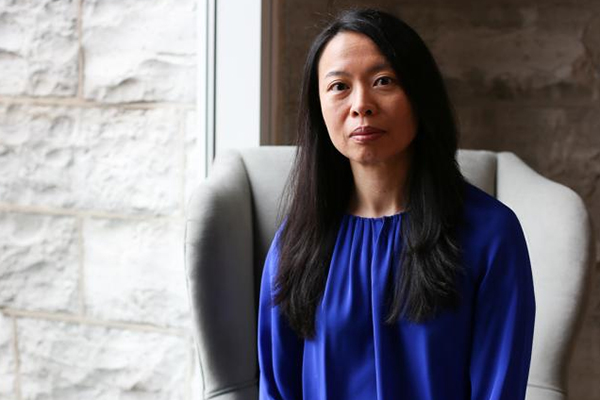Integrating Western and Indigenous care
May 16, 2019
Share

This article was first published on the Faculty of Health Sciences Dean’s Blog.
Working as an occupational therapist in a Cree community in northern Quebec, Jung Lin was very far away from Queen’s when she heard about the DSc in Rehabilitation and Health Leadership (RHL) program - but the timing could not have been better.
Jung learned about the program through an informational email from the School of Rehabilitation Therapy, where she’d earned a master’s degree ten years before. Just a few days before she received this email, she had been having a conversation with her manager about whether or not she’d be interested in taking a larger research and leadership role within their organization.
When the message about the RHL program reached her, then, it seemed almost like a sign.
The DSc RHL program is one of our newest offerings in the Faculty of Health Sciences, and it is designed for people, like Jung, who already have careers in health care but want to develop their skills in order to take on bigger challenges and larger responsibilities.
Jung’s goal in earning her doctorate is to put herself in the position to help rehabilitation professionals work more closely with Indigenous care providers. For her dissertation, she is conducting a mixed-method study to develop training modules that can help practitioners learn how to integrate Western and Indigenous methods of care. Her goal is to use her findings to develop better training systems for Indigenous paraprofessionals and to enhance service delivery.
“While I greatly enjoy providing care to my patients, I’m also looking to make bigger changes,” Jung says. “The Rehabilitation and Health Leadership program is teaching me how to make the larger impact I’m aiming for.”
Originally from Taiwan, Jung has been making connections across cultural divides her entire adult life. After earning her degree in Occupational Therapy in her home country, she worked there for several years at a mental health facility before moving to Canada with her family.
When she and her parents came to Canada, they settled in Montreal, which they chose because Jung’s older sister was working toward her PhD at McGill. After a few months, though, Jung decided on a change of scenery and to get started on earning her master’s degree.
She found her way to the Master’s in Rehabilitation Science program at McMaster University, where she developed a greater understanding of Canadian healthcare.
After finishing this one-year program, however, she felt like she had more to learn and explore in order to enter the workforce with a greater sense of confidence and mastery. Ultimately this desire led her to enroll in the thesis-based Master’s program in Rehabilitation Science at the Queen’s School of Rehabilitation Therapy.
At Queen’s, Canada truly started to feel like home for Jung. She gives a lot of credit to her supervisor, Dr. Rosemary Lysaght, for supporting her with her transition to Kingston and for helping her develop a professional network.
From Kingston, Jung returned to Montreal to be closer to her family, and she worked as an occupational therapist in the city. When she saw the job advertisement for her current position with the Cree Board of Health and Social Services of James Bay, she was immediately intrigued. She viewed it as an opportunity to provide useful services to a part of Canada that she wouldn’t get to know otherwise.
Jung says there are some challenges to working in the north. Her family still lives in Montreal, so every two months she drives nine hours (each way) to spend time with them. The community she lives in is over an hour and a half away from the nearest grocery store, which means she has to plan her shopping trips much more carefully than she was used to before working there. And, of course, the weather can get extremely cold.
But Jung finds the experience highly rewarding despite any challenges.
The DSc RHL program is fitting in to her work and life commitments just as she’d hoped it would. The online nature of most of the coursework allows her to integrate studying into her busy schedule without much trouble.
Even more important, she strongly believes that the program is helping her to meet her goals.
“I think I’ve gone through a transformation since starting the program,” she says. “I am more capable of making long-term plans for my work, and I have grown more confident as a leader. The classes ‘Leadership Development Seminar’ and ‘Applying Theory to Enable Change’ have had an especially strong impact on me.”
Jung felt confident in her decision to enroll in a second degree program at the Queen’s School of Rehabilitation Therapy because, as she worked toward her master’s, she thought it was an environment where the faculty truly care about students and their needs.
“After 10 years,” she says, “I think Queen’s is just as student-centred as I remember it.”
Dr. Reznick thanks Andrew Willson for his assistance in preparing this blog.